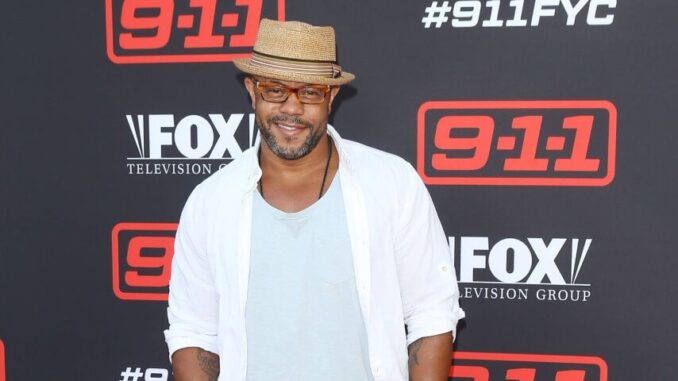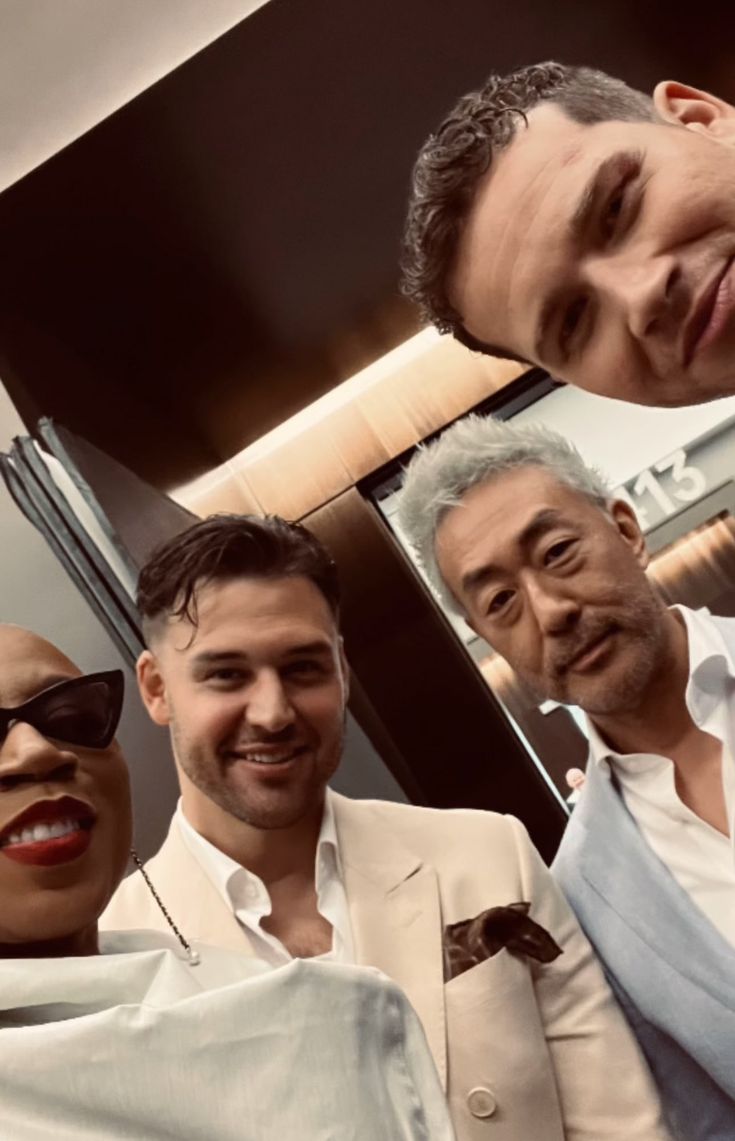
In a high-stakes courtroom drama unfolding in Hollywood, Rockmond Dunbar, known for his role on 9-1-1, is heading to trial over his refusal to comply with a COVID-19 vaccine mandate. The dispute touches on religion, employment law, and how far studios can go in enforcing health policies. This article digs deep into the facts, the arguments, and what this case could mean for future vaccine mandates in entertainment.
Who Is Rockmond Dunbar? A Quick Background
Acting Career & Public Profile
Rockmond Dunbar has built a solid résumé in television. He’s appeared in shows like Sons of Anarchy, The Mentalist, and joined 9-1-1 in 2018 as Michael Grant.
His reputation is that of a serious actor with integrity—so this legal battle is drawing attention.
The Vaccine Mandate Departure from 9-1-1
In 2021, Dunbar left 9-1-1, citing his refusal to comply with the show’s vaccination policy. He claimed his requests for medical and religious exemptions were denied.
He later sued, alleging discrimination and breach of contract among other claims.
What’s the Case About? Mandates vs. Religious Rights
The Core Dispute
At issue is whether Disney’s 20th Television (the studio behind 9-1-1) legitimately required the vaccine and whether Dunbar’s refusal—on religious grounds—was protected under law.
The Studio’s Position
Disney counters that Dunbar may have fabricated or exaggerated his religious beliefs to dodge the mandate.
They argue that his exemption requests lacked sincerity and that his employment terms were clear.
Dunbar’s Defense & Religious Claims
Dunbar asserts dismissal violated his religious rights, claiming that his beliefs prevented him from taking the vaccine.
He pointed to his affiliation with the Congregation of Universal Wisdom, a small religious group that opposes certain medical interventions.
Legal Precedents & Employer Mandate Power
Legal Protections for Religious Beliefs
Under U.S. law, employees may request a religious accommodation where a workplace policy conflicts with sincere beliefs. Employers must give these requests serious examination, unless granting them causes undue hardship.
Mandates in Entertainment & Health Policies
Post-COVID, many studios adopted vaccination mandates for cast and crew. The entertainment sector became a testing ground for how strict such policies could be, especially when intersecting with personal beliefs.
When Does an Exemption Fail?
Courts often look at sincerity, consistency of practice, and whether the employee applied the same standards to other medical choices. If the religious claim seems tailored solely to avoid a mandate, it risks being rejected.
Key Timeline & Milestones in Dunbar’s Case
2021 – Mandate & Departure
As mandates took effect, Dunbar requested both medical and religious exemptions. He was denied and ultimately left 9-1-1 in 2021.
2022 – Lawsuit and Early Motions
Dunbar filed suit, claiming discrimination and breach of contract. A judge dismissed his racial discrimination claims but allowed religious/exemption claims to move forward.
2025 – Trial Approaches
Now, the case is scheduled to go to trial. Disney insists Dunbar’s justification is weak and contrived. Dunbar maintains his beliefs are genuine.
The Role of the Congregation of Universal Wisdom
What Is This Church?
The Congregation of Universal Wisdom is a small group that holds opposition to certain medical interventions. To be part of it, some reports say, one only needs to submit a letter asserting a desire to live by its tenets and donate minimally.
Challenges to Religious Authenticity
Critics have questioned how deeply Dunbar practices those beliefs, pointing to examples where he had undergone medical procedures seemingly contrary to that doctrine.
A judge has already expressed skepticism that invoking “communing with God” can allow one to sidestep ordinary rule of law.
What Each Side Will Likely Argue
Disney’s Likely Strategy
-
Challenge sincerity: Show inconsistencies in Dunbar’s religious claims.
-
Highlight contract terms: Emphasize the mandate was part of employment terms.
-
Demonstrate hardship: Arguing that allowing Dunbar’s exemption would undermine workplace safety.
Dunbar’s Defense Tools
-
Prove sincerity: Offer testimony, religious practices, consistency over time.
-
Show discrimination: Argue that others were accommodated, or that he was singled out.
-
Invoke protected rights: Use First Amendment and federal statutes like Title VII.
Implications Beyond This One Case
For the Entertainment Industry
If Dunbar wins, studios may have to rethink rigid mandates or create more robust exemption processes. It could influence casting contracts, insurance, union negotiations, and health policies.
For Religious Exemption Jurisprudence
A favorable ruling strengthens arguments that religious beliefs, even minority or unconventional ones, must be assessed carefully. A loss might narrow the standards for acceptable religious claims.
For Mandate Policies in General
The case might ripple into corporate, academic, and governmental vaccine policies—many of which still rely on exemptions as safety valves.
Potential Weak Spots & Risks
Credibility Battle
If Dunbar’s religious narrative appears recent or specially tailored, a jury might see it as a legal defense rather than heartfelt belief.
Employer’s Burden
Disney must convincingly argue that Dunbar’s exemption would cause undue hardship to production safety.
Public Perception & Media Pressure
With media scrutiny, both sides risk narratives about anti-vaxx ideology or religious suppression. Public sentiment may color the courtroom.
Public & Media Reactions
Supporters of Dunbar
Some see him as a figure of religious liberty under threat. Social media voices argue that even small religious communities deserve protection from coercive mandates.
Critics & Skeptics
Others say vaccine mandates protect health and that Dunbar may be abusing religious claims. Some frame it as a test case for fraud.
Neutral Observers & Legal Analysts
Legal watchers are eager to see how courts weigh sincerity, doctrine, and the balance between public health vs. individual rights.
What to Watch in the Trial
Witness Testimony on Belief Practice
Expect religious experts, personal testimony, and cross-examination of consistency.
Documentary Evidence
Dunbar’s prior medical history, application documents, and correspondence with the studio may come to light.
Jury Instructions & Legal Standard
Which standard the judge instructs the jury on sincerity and undue hardship will be crucial.
Verdict & Possible Appeals
No matter who wins, the loser will almost certainly appeal—potentially pushing this to higher courts.
How This Case Compares to Others
High-Profile Mandate Lawsuits in Entertainment
Other actors and crew have challenged mandates, but few have gone all the way to trial. Dunbar’s case is rare in that respect.
Court Rulings in Religious Exemption Cases
Prior cases often hinge on sincerity and whether exemptions pose real burden—consistent with what’s playing out here.
Outcome Patterns
Some courts give deference to employer policies in health emergencies; others have sided with employees whose religious claims were solid.

What This Means for You (If You’re an Employee or Employer)
For Workers Invoking Religious Exemptions
-
Be consistent: your practices should predate the dispute.
-
Document beliefs: journals, statements, membership in a faith.
-
Be reasonable: propose alternatives if possible (testing, PPE, etc.).
For Employers Instituting Mandates
-
Draft clear policy language and communicate exemptions.
-
Apply exemption process uniformly.
-
Assess hardship claims case by case—not blanket denial.
Conclusion
Rockmond Dunbar’s journey to trial over a COVID-19 vaccine mandate is more than a Hollywood spectacle—it’s a legal battleground for religious freedom, workplace rights, and the limits of institutional power. The stakes are high: a ruling in his favor may force studios and employers to reassess mandates and exemptions. A ruling against him may narrow protections for sincere religious objection. Either way, this trial will echo beyond star billing—into contracts, courts, and the continued tension between public health and personal conviction.